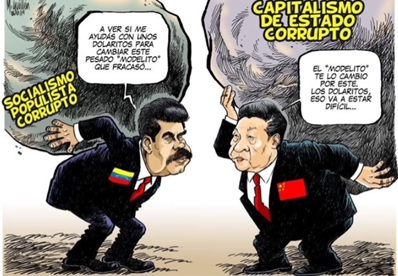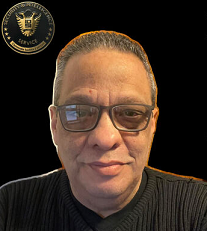
The 21st century has witnessed a terrifying evolution: crime has become the new architecture of power.
What once operated in shadows now occupies presidential palaces. Cartels, mafias, radical militias, ideological sects, warlords — they are no longer enemies of the state. In many cases, they are the state. They fund elections, control institutions, dictate laws, and shape foreign policy.
In Venezuela, the Bolivarian narco-dictatorship exported not only its people — now over 11 million forcibly displaced — but also its network of terror. I have spoken of this for years, long before the world recognized the danger. Tren de Aragua, an organization I labeled a terrorist entity well before it reached international headlines, now has cells across the Americas and Europe — trafficking, extorting, and spreading fear.
This is not simple crime. This is narco-terrorist infrastructure embedded in the DNA of a regime.
But Venezuela is not an exception. It is the prototype.

In Haití, the collapse of governance has given way to armed gangs controlling entire cities, with the government barely functioning in name only. International missions have failed repeatedly. The gangs are not hiding. They are governing. Port-au-Prince is no longer a capital — it is a battlefield ruled by factions.
Across Africa, the pattern repeats. In the Sahel, terrorist groups like Al-Qaeda in the Islamic Maghreb and Islamic State offshoots have fused with tribal militias and illicit economies. Human trafficking, arms smuggling, and resource extraction form a dark economy that replaces the state with networks of criminal-political fusion.
In the Middle East, states like Iran act not only as geopolitical players but as sponsors and architects of global asymmetric warfare. Through proxies like Hezbollah, Hamas, and the Houthi rebels, Tehran projects influence via terror, embedding itself into regional instability. These are not disconnected threats. These are coordinated realities.
Radical groups, criminal empires, and authoritarian regimes are now converging — working in synchronization. This is not fiction. This is the blueprint of our current disorder.
This Criminal World Order is not accidental. It is the result of decades of global complacency, institutional hypocrisy, and selective diplomacy. While human rights were debated in the halls of Geneva, entire nations were being hijacked by criminals in uniforms and suits.
And in the midst of this darkness, migration has become the smokescreen.
Criminal actors move across borders not as fugitives, but as organized systems.
Despair is weaponized. Humanitarian corridors become trafficking routes.
We call it a refugee crisis — but in many cases, it is a strategic displacement, designed to destabilize, infiltrate, and confuse.
What President Trump calls out — often with crude language — is a reality few have dared to address: we are no longer dealing with crime as a social phenomenon. We are dealing with crime as a global system of power.
This is hybrid warfare in its most dangerous form. It blends ideology, weaponized migration, corrupted diplomacy, cyber infiltration, and media manipulation — with the complicity of regimes that use humanitarian rhetoric while they fund militias and suppress their own populations.
And here lies the brutal truth:
Governments across the globe are no longer separated from crime. They are embedded in it.
Whether through negligence, fear, or financial interest, many states have become accomplices — or hosts — to the very actors that are tearing down the global order.
President Trump, in this context, is not the origin of this system.
He is the reaction to its exposure.
His rhetoric may be polarizing. His actions may be blunt. But his emergence — and his return — are symptoms of a global structure that has already been overrun by transnational malignancy.
If we are to reclaim our nations, restore our institutions, and protect our sovereignty, we must stop treating these crises as humanitarian only.
We must see them for what they are:
A coordinated assault on the idea of the state itself.
[ Further information on this topic HERE ]

** Armando Johan Obdola, es un experto de Global Security & Intelligence, Geopolitical Strategist, Counterterrorism & Transnational Crime Specialist, Speaker and Chairman of the International Organization for Security and Intelligence (IOSI)
Comments powered by CComment